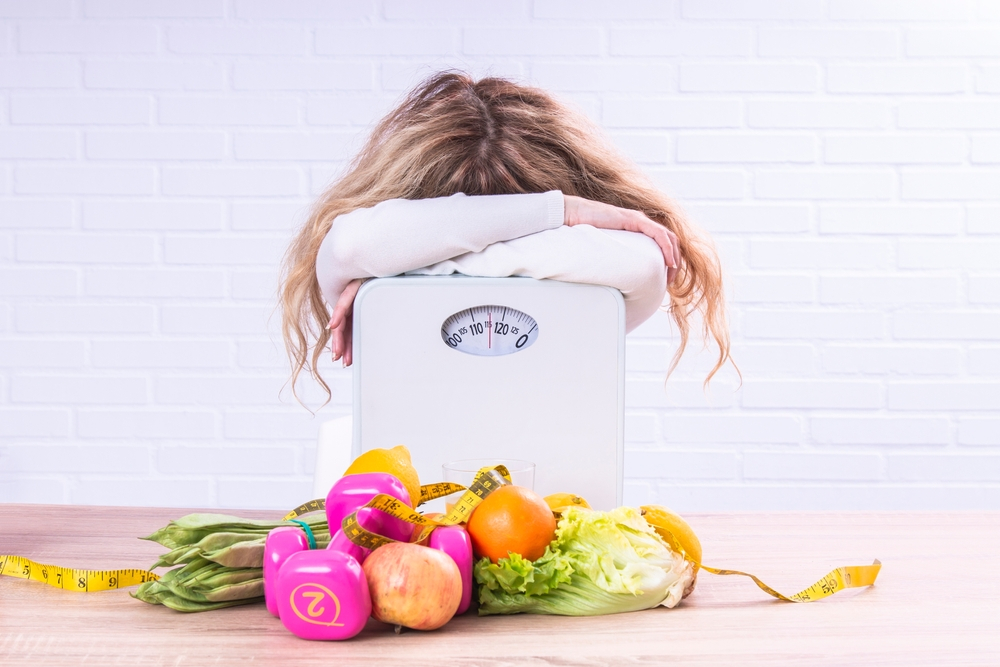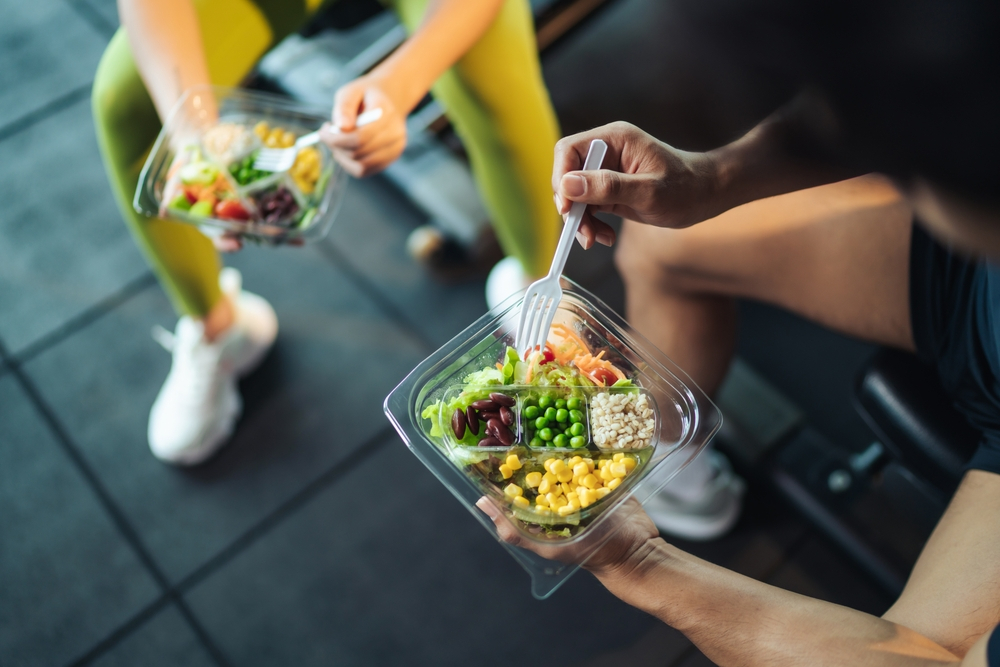Eating for Energy: Foods that Combat Fatigue and Stress

Table of Contents
Are you constantly feeling exhausted and stressed? It may be time to reevaluate your diet. The foods you eat can have a significant impact on your energy levels and stress resilience. In this article, we’ll explore a variety of delicious and nutritious foods that combat fatigue and stress, leaving you feeling rejuvenated and revitalized.
Understanding the Link Between Diet, Energy, and Stress

Have you ever noticed how a heavy meal can make you want to take a nap, or how a cup of coffee can give you a quick jolt of alertness? That’s because what we munch on plays a massive role in how energized or frazzled we feel. Foods loaded with nutrients help our bodies produce energy and manage stress, while a diet full of junk food can leave us feeling sluggish and on edge. Let’s get into how chowing down on the right stuff can turn your day around!
The impact of food on energy and stress levels
Ever feel like you’re running on empty? That’s probably your body crying out for better fuel. Just like a car needs gas to go, your body needs good food to keep energy high and stress low. Different foods can either give you a quick boost or help you stay powered for longer.
When we talk about eating for energy, we’re looking at what’s on your plate to help you zoom through the day. On the flip side, when we’re frazzled and fried, it’s often because we’ve got too much stress sizzling. Here’s where the right grub comes in. Foods can be like a chill pill for your body. They’re packed with goodies that help your brain and nerves stay cool under pressure. So, if you wanna kick fatigue and stress to the curb, think about munching on foods that are more than just tasty—they’re your partners in feeling peppy and peaceful.
How certain nutrients support energy production and stress management
Good news for anyone feeling like they’re running on empty: what you eat can be your secret weapon for bouncing back. Nutritious food can do more than just fill your stomach; it gives you the ammo your body needs to fight off tiredness and stress.
Each bite of food we take breaks down into vitamins, minerals, and other nutrients that power our cells like tiny, biological batteries. For example, B vitamins are the VIPs when it comes to energy production. They help turn what we eat into energy our bodies can use. And then there’s Vitamin C and magnesium, which are like a chill pill for our bodies, helping to keep stress in check. By choosing foods packed with these nutrients, you’re actually helping your body to stay lively and keeping the stress monsters at bay!
Eating for Energy: Foods that Combat Fatigue

Ever find yourself dragging your feet by midday, reaching for that third cup of coffee just to keep going? You’re not alone. But instead of relying on caffeine to perk up, paying attention to what’s on your plate could be the game-changer. Let’s dive into food choices that can help you dodge that feeling of exhaustion and keep your energy cruising all day long.
High-energy fruits and vegetables
Ever feel like you’re running on empty? A quick secret: Mother Nature packs a powerful punch in fruits and veggies that can boost your get-up-and-go. High-energy fruits and vegetables are like natural batteries for your body. They’re loaded with vitamins, minerals, and antioxidants, which are crucial for helping you feel awake and alert.
For example, bananas are famously rich in potassium and also contain a good amount of carbs to fuel your day. On the other hand, spinach isn’t just for strong muscles like Popeye’s – it’s full of iron, which helps in reducing tiredness and fatigue. Integrating these foods into your meals can be a game-changer for keeping your energy levels up without reaching for a candy bar or a cup of coffee.
Protein-rich Foods for Sustained Energy
Are you looking to beat tiredness and keep your energy at a steady level all day? Look no further than protein-rich foods. Protein is essential for the maintenance and repair of our body tissues, but it also plays a key role in energy levels. It takes longer for your body to break down protein, which means you get a sustained release of energy over time. This is great for staying alert and focused throughout the day.
Foods like chicken, fish, eggs, and legumes are power-packed with protein that can help keep the sleepiness at bay. Not to mention, they are versatile and can be incorporated into any meal. For vegetarians or those looking for a plant-based twist, nuts, seeds, tofu, and quinoa are fantastic alternatives. By integrating these protein heroes into your meals, you’re not only supporting your muscles but also ensuring that your energy tank stays full longer, making you ready to conquer whatever comes your way.
Healthy fats that provide long-lasting energy
You’ve probably heard that not all fats are enemies to your body. In fact, your body loves healthy fats! These fats are not only essential to your body’s functions, but they’re also powerhouses when it comes to providing you with energy that sticks around. Think of them as the slow-burning logs on a campfire, keeping you warm and toasty for hours, not just a quick burst of flames.
One of the best sources of these beneficial fats is avocados. They’re like nature’s butter, smooth and rich, and they come packed with monounsaturated fats that help manage stress levels and keep you feeling full and focused. Nuts and seeds are another great choice. Take almonds, walnuts, and chia seeds, for example—they deliver a punch of energy and they’re portable, making them an easy snack to stave off fatigue on the go. And let’s not forget about fatty fish like salmon, which brings a double whammy of omega-3 fatty acids and protein, promoting not only sustained energy levels but also supporting brain health. So go ahead, drizzle some olive oil on your salad or snack on a handful of nuts – your body will thank you with energy that lasts!
Stress-Busting Foods

Feeling like a bundle of nerves? Your kitchen might just be the haven you need! Certain munchies pack a punch when it comes to melting away tension. We’re talking about more than just comfort food here; these are the stress-busters, loaded with nutrients that your body can use to fight back against the pressure of a hectic life. Let’s dive into the kinds of foods that’ll help you stay cool under pressure.
Foods Rich in Antioxidants and Vitamins
Eating foods packed with antioxidants and vitamins isn’t just about keeping illnesses at bay—it’s also a powerhouse move for clearing out the cobwebs of fatigue and taking a sledgehammer to stress. Think of antioxidants as your body’s cleanup crew, sweeping away damage caused by stress and pollution. This damage, or oxidative stress, can make you feel like you’re running on empty.
Now, let’s talk about vitamins. Some vitamins, like B-complex and vitamin C, are like your internal cheerleaders, keeping your energy consistently up and combating stress. They’re involved in turning the food you eat into the energy your body can use—pretty important, right? Foods like oranges, berries, and leafy greens are not only colorful delights; they’re brimming with these vitality-boosting nutrients. So make sure to fill your plate with a rainbow of fruits and vegetables to keep your engines running smoothly!
The role of complex carbohydrates in stress relief
Carbs often get a bad rap, but they’re not all created equal. Complex carbohydrates are the good guys in the story, especially when it comes to melting away stress. They do this super-cool thing where they increase the amount of serotonin in your brain. Serotonin is like a chill pill for your body, helping you feel calmer and more relaxed.
But it’s not just about feeling good in the moment. Eating complex carbs helps stabilize your blood sugar levels, which means you’re less likely to experience those wild energy dips that can make anyone feel cranky. So next time you’re feeling the pressure, reach for some whole grains like brown rice or oats. They’ll give you steady energy and help keep stress at bay.
Adaptogenic Herbs and Their Stress-Reducing Properties
Sometimes our bodies feel like they’re in a never-ending battle with stress. But guess what? Nature’s got our backs with some pretty awesome allies known as adaptogenic herbs. These herbs are like the superheroes of the plant world, helping our bodies fight stress and bounce back faster.
Adaptogens work by balancing and stabilizing the body’s stress-response system. Imagine adaptogens as your personal stress managers; they don’t just show stress the door but also teach your body to handle it like a pro. Some famous adaptogens include Ashwagandha, Rhodiola Rosea, and Holy Basil. Not only do they reduce the feeling of being overwhelmed, but they also boost energy without being stimulants. So, you get the chill vibes and the power to cruise through your day. Cool, right?
For a quick break down, here’s how these herbs roll:
- Ashwagandha: Often called the king of adaptogens, it kicks anxiety and fatigue to the curb and promotes a sense of calming energy.
- Rhodiola Rosea: This gem is all about boosting stamina, so you’re less likely to crash when stress hits the fan.
- Holy Basil: Known as Tulsi, it ushers in calm and defends your body against stressors, keeping your mind clear and your energy stable.
Incorporating these herbs into your routine can be a game-changer. Teas, supplements, and even adding them to foods are all ways to welcome these stress busters into your life. Just be sure to have a chat with a healthcare professional before starting, especially if you’re rocking other meds or have health concerns.
Meal Planning for Energy and Stress Management

Got your fridge stocked with all the right foods but not sure what to do next? It’s all about how you plan your meals. Creating the perfect plate is like crafting a masterpiece that not only tastes amazing but also refuels your body and chills you out. Let’s figure out how to whip up meals that pack a punch in the energy department and knock stress off its feet. Remember, it’s not just about what you eat, but when and how you bring all those stress-busting, energy-boosting foods together on your daily menu.
Creating Balanced and Energizing Meals
Creating meals that boost your energy and keep you going all day doesn’t have to be a puzzle. It’s all about picking the right pieces and putting them together in a way that works for your body. Balanced meals combine adequate protein, carbohydrates, and fats. Protein is like your long-lasting battery, carbs are your quick-energy source, and fats keep you satisfied for hours.
First, imagine your plate divided into sections. Fill half of it with colorful fruits and veggies—these are your fiber-filled energy providers that also supply essential nutrients. A quarter of your plate should have lean protein—think chicken, fish, beans, or tofu—to help with muscle repair and provide enduring energy. The last quarter is for whole grains or starchy veggies, giving your brain and muscles the fuel they need to run efficiently. Add a dash of healthy fats from avocados or nuts, and you’ve got yourself a powerhouse meal that’ll keep sluggishness at bay. Remember, consistency is key; balanced meals should be part of your daily eating habits to help alleviate those dips in energy and mood.
Pre-and Post-Workout Snack Options
Working out is awesome for your health, but what you munch on before and after can really make a difference in how you feel. Before you hit the gym, think about grabbing a bite that’s light but packed with carbs. Carbs are like a quick fuel for your body. A small banana, a slice of toast with jam, or a handful of granola can give you that burst of energy.
After you’ve sweated it out, your muscles are hungry for repair. That’s where protein comes in to save the day. It helps fix and build up your muscle fibers. Try a hard-boiled egg, some Greek yogurt, or a few slices of turkey. Pair that with some complex carbs like whole-grain bread or an apple, and you’re on track for recovery. Remember, your snack shouldn’t be huge, just enough to tide you over and kickstart the healing process.
The importance of hydration for energy and stress reduction
When it comes to boosting your energy and keeping stress at bay, hydration is like the silent hero of your body’s story. Think of water as the oil that keeps your engine running smoothly; without enough of it, you’re bound to sputter and stall. Your body is made up mostly of water, and it needs to stay well-hydrated to perform at its best. When you’re dehydrated, your body has to work extra hard to do its regular jobs, which can leave you feeling wiped out and frazzled.
Drinking plenty of fluids supports your body’s natural energy-producing processes. Plus, a well-hydrated body is better at managing stress since it can maintain proper hormone function and nerve signaling. There’s also something super relaxing about sipping on a tall glass of water – it’s a simple act that can remind you to take a deep breath and chill for a moment. So, grab your water bottle and make sure to drink up throughout the day; your mind and body will thank you for it!
Incorporating These Foods into Your Daily Routine

Have you ever hit that mid-afternoon slump or felt so stressed that you couldn’t focus? You’re not alone, and the solution might be as simple as changing what’s on your plate. Bringing in a mix of energizing and calming foods into your daily life isn’t hard, and it can make a big difference. We’ve got some tasty tips and tricks that’ll help you snack smart, cook with purpose, and even make mealtime a chill-out session. Let’s dive in and discover how you can weave these power-packed ingredients into your daily eats!
Easy and Delicious Energy-Boosting Recipes
Who knew fighting fatigue could be so tasty? With the right recipes, you can whip up meals that not only taste great but also give you a powerful energy lift. By using ingredients packed with nutrients, these culinary creations help you kick tiredness to the curb.
One fan-favorite is a smoothie that combines bananas, spinach, and a scoop of almond butter. This mix is not just delicious; it’s also a dynamite trio of energy-releasing potassium, muscle-loving protein, and good fats that keep you running smoothly all day long. And for those times when you hunger for a snack, homemade oatmeal energy balls with a dash of chocolate chips and a sprinkle of flaxseeds can be your go-to treats. They’re no-bake wonders that store well and deliver a quick pick-me-up with fiber and omega-3s.
Snack Ideas for Combating Afternoon Fatigue
Are you hitting a slump in the afternoon? You’re not alone. This common drop in energy can make you want to reach for a cup of coffee or a sugary treat, but there are better choices that can help you power through!
Try snacking on a handful of nuts, like almonds or walnuts. These are not only tasty but are packed with proteins, healthy fats, and fiber that slowly release energy to keep you going. Or, grab a piece of fruit, such as an apple or banana, for a quick natural sugar boost coupled with fiber, helping you avoid the sugar crash that sweets can cause.
If you’re craving something crunchy, go for air-popped popcorn or carrot sticks. They’re light but will satisfy that need for a crunchy texture, and the fiber content helps keep you full. For those with a sweet tooth, dark chocolate with a high cocoa content can be a great pick-me-up. It contains magnesium, which may help reduce stress, and just a little can give you a mood and brain boost without a lot of added sugar.
Don’t let the afternoon fatigue decide your day. With these snacks, you can recharge and stay sharp until the evening!
Mindful Eating Tips for Stress Reduction
When life gets hectic, it’s easy to scarf down a meal without even noticing what you’re eating. But did you know that how you eat can be just as important as what you eat when it comes to tackling stress? Mindful eating is a simple but powerful technique that can make a huge difference.
Mindful eating involves paying full attention to the experience of eating and drinking. You focus on the colors, smells, textures, and flavors of your food, and you become more aware of your hunger and fullness cues. This practice can help you enjoy your meals more and reduce stress.
How to Practice Mindful Eating:
- Chew Slowly: Take your time with each bite, chewing slowly to savor the flavors.
- Eliminate Distractions: Turn off the TV and put away your phone. This helps you focus on your meal.
- Listen to Your Body: Pay attention to your hunger signals and stop eating when you’re full.
- Appreciate Your Food: Take a moment to express gratitude for your meal. This can enhance the eating experience and promote satisfaction.
By eating mindfully, you can turn each meal into a moment of calm and relaxation, which is incredibly beneficial in our often too-busy lives. It’s not just about eating; it’s about nourishing both body and soul.
Conclusion
It’s time to power up and take control of your energy levels and stress levels through your diet. By incorporating these energizing and stress-busting foods into your everyday meals, you can experience a renewed sense of vitality and resilience. Say goodbye to fatigue and stress, and hello to a vibrant and energetic lifestyle!
FAQs
Power Up Your Day with the Right Foods and Habits
Feeling sluggish? Drained? You’re not alone. Many people struggle with low energy levels throughout the day. But before you reach for that sugary pick-me-up, consider fueling your body with the right foods and habits for sustained energy. Here are some answers to your questions:
What foods give you more energy?
- Complex carbs: Ditch the sugar crash and opt for slow-burning sources of energy like whole grains (brown rice, quinoa, oats), sweet potatoes, beans, and lentils. These foods provide sustained energy release thanks to their fiber content, keeping you going for longer.
- Healthy fats: Don’t fear fat! Avocados, nuts, seeds, and fatty fish like salmon are rich in omega-3 fatty acids, which play a crucial role in energy production and cell function.
- Lean protein: Protein provides building blocks for energy and helps regulate blood sugar levels. Choose lean options like chicken, fish, tofu, or beans for sustained energy without the heaviness.
- Fruits and vegetables: Packed with vitamins, minerals, and antioxidants, fruits and vegetables are essential for overall health and well-being. They also provide a natural energy boost thanks to their natural sugars and fiber content.
What food gives instant energy?
While some foods can provide a quick energy boost, it’s often short-lived and followed by a crash. Sugary snacks and drinks may give you a temporary high, but they can lead to blood sugar spikes and dips, leaving you feeling even more tired later. Opt for sustained energy sources instead.
Does eating give you energy?
Yes, eating the right foods at the right times can definitely give you energy. However, it’s not just about what you eat, but also when and how much you eat. Skipping meals or eating erratically can disrupt your blood sugar levels and lead to fatigue. Aim for regular meals and snacks throughout the day to keep your energy levels stable.
What foods can help with fatigue?
If you’re feeling chronically fatigued, certain foods can help:
- Iron-rich foods: Iron deficiency is a common cause of fatigue. Include iron-rich foods like red meat, poultry, seafood, beans, lentils, and dark leafy greens in your diet.
- Vitamin B12-rich foods: Vitamin B12 is essential for energy production. Shellfish, meat, poultry, dairy products, and fortified foods are good sources.
- Magnesium-rich foods: Magnesium plays a role in energy metabolism. Nuts, seeds, leafy greens, bananas, and avocados are good sources.
How can I increase my energy level?
In addition to eating a healthy diet, here are some other tips to boost your energy:
- Stay hydrated: Dehydration can zap your energy. Drink plenty of water throughout the day.
- Get enough sleep: Aim for 7-8 hours of sleep per night.
- Exercise regularly: Physical activity increases energy levels and improves overall health.
- Manage stress: Stress can drain your energy. Find healthy ways to manage stress, such as yoga, meditation, or spending time in nature.
- Limit caffeine and alcohol: These substances can disrupt sleep and worsen fatigue in the long run.
How to avoid tiredness?
By following the tips above, you can create a lifestyle that supports optimal energy levels. Remember, it’s a marathon, not a sprint! Making gradual changes to your diet and habits can have a lasting impact on your energy and overall well-being.
Useful resources
- Harvard Health Publishing – Eating for Energy: https://www.health.harvard.edu/staying-healthy/boosting-your-energy
- WebMD – Eat to Boost Your Energy: https://www.cnn.com/2021/08/14/health/10-energy-boost-tips-drayer-wellness/index.html
- Academy of Nutrition and Dietetics – Foods to Power Your Day: https://www.eatright.org/food
- Mayo Clinic – Diet and Healthy Eating: https://www.cdc.gov/healthyweight/healthy_eating/index.html (This resource covers much more than just energy, but has a dedicated section on “Foods to Boost Energy.”)








I am truly thankful to the owner of this web site who has shared this fantastic piece of writing at at this place.
Thank you for your encouraging words! I’m delighted to hear that you enjoyed the presentation. Your support fuels my motivation to continue sharing valuable content. If you have any specific topics in mind for future articles, feel free to share. Looking forward to inspiring others together!
Your article helped me a lot, is there any more related content? Thanks!
thank you so much